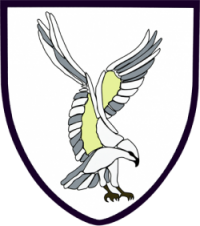P W D L
10 1 6 3
Club Captain : Fred Meager
The 1878-79 Season saw F.F. (Fred) Meager again at the helm. It was his third consecutive season as captain and having been preceeded by C.C. (Charlie) Chambers in the first two seasons under the Rugby football code, he was only the second ever captain up to this point (he again held the honour in 1880-81). Meager was a keen cricketer as were most of the early Swansea players who regularly played (association) football in the close season. He had been responsible for putting the motion at an 1874 meeting (see 1873-74 Season), that the Club should adopt Rugby Union rules instead of Association Football. Meager was prominent in promoting a more serious attitude to fitness at Swansea, having put recent defeats to Newport in his earlier tenure as captain down to the better fitness and passing dexterity of the Gwent side. Determined to bring Swansea to the forefront of Rugby Football, he insisted on attention to passing skills as well as general fitness in training sessions which paid dividends as Swansea were able to match their opponents in skill and stamina to build a strong reputation under his guidance. His greatest contribution was to come in his last tenure of the captaincy when he helped guide the forming of the WFU (see 1880-81 Season). Swansea and Neath were drawn together in the South Wales Challenge cup and played six matches to try and settle tie. Eventually the Match Committee disqualified both sides but later relented to allow them to settle the impasse which fell at the seventh attempt to Neath. . Newport had already beaten Cardiff in the final by then. Swansea were to gain revenge over both sides in the 1879-80 season. At an Easter Monday Athletics Meeting at St Helens, the Club made £60 – £70 profit from a gate of £130 while 3,000 spectators had turned out. Profits were given to the Cricket Club illustrating that the Football Club was no longer the junior partner at St Helens Ground in financial terms which was largely down to the guidance of the committee who also garnered funds for the ground improvements of the early days.
